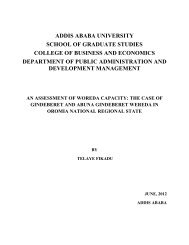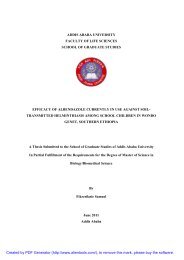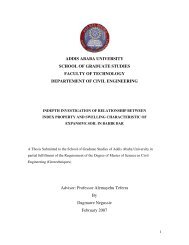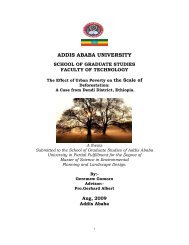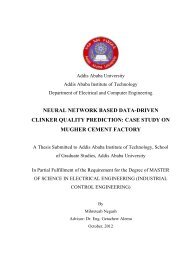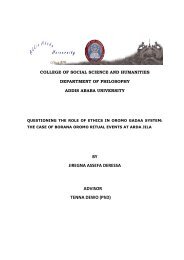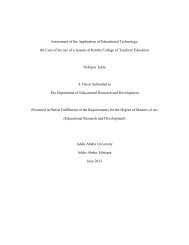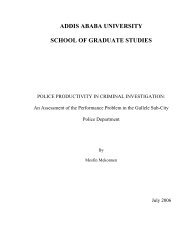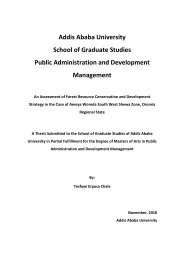FACTORS THAT CONTRIBUTE TO THE PROBLEMS EFL ...
FACTORS THAT CONTRIBUTE TO THE PROBLEMS EFL ...
FACTORS THAT CONTRIBUTE TO THE PROBLEMS EFL ...
You also want an ePaper? Increase the reach of your titles
YUMPU automatically turns print PDFs into web optimized ePapers that Google loves.
Weakness<br />
1. As indicated in the description of the target material, the exercises include<br />
identifying combinations of sounds and words that are frequently difficult for<br />
nonnative speakers. This nature of the exercises traps the learners to easily<br />
commit errors. This makes the exercises of the book difficult for our learners.<br />
This can be one reason which made the learners perceive the speech of the<br />
native speakers as difficult to understand.<br />
2. As the name of the material implies (<strong>TO</strong><strong>EFL</strong> - Test of English as a Foreign<br />
Language), it is a proficiency test that is purposely designed to measure non-<br />
native people’s ability in English to decide whether an individual is capable to<br />
study in the Colleges of USA. Thus, the material focuses on the elements of<br />
testing rather than letting the students practice the various listening skills and<br />
strategies. For example, the material lacks pre-listening tasks; as a result, it<br />
doesn’t encourage practicing the predictive skills of <strong>EFL</strong> listening.<br />
3. Comprehension of some of the topics of the text requires the background<br />
knowledge of the history and the culture of the Americans. Thus, some of the<br />
topics might be difficult for those students who do not have background<br />
knowledge about the history and the culture of the Americans. There are also<br />
topics with difficult theoretical concept such as “why butterflies surround light”<br />
which require the learners’ knowledge of theory related to a particular subject<br />
matter. Such topics may be difficult for the learners to understand the listening<br />
message, and the tasks related to these topics might be beyond the learners’<br />
cognitive capacity and experience. This can make the learners to be frustrated<br />
rather than being motivated to listen.<br />
4. The material was purposely designed to evaluate the learners <strong>EFL</strong> listening<br />
ability so that the listening tasks were intended to demand the skills of listening.<br />
However, most of the tasks in the material demand a range of linguistic abilities<br />
(such as vocabulary, grammar, reading skills, etc). These made the students’<br />
success of listening to be depend on their knowledge of reading skills,<br />
vocabulary and grammar other than their skills of listening. This can be one<br />
factor which affected the students’ listening performance.<br />
75




